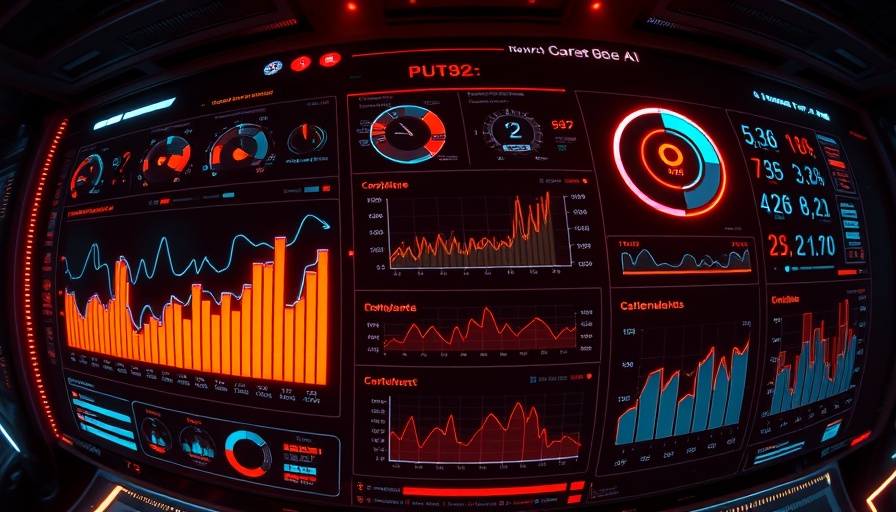
Understanding AI Governance Tools for Scaling Businesses
Artificial Intelligence (AI) offers unparalleled automation and efficiency, revolutionizing business operations. However, as organizations adopt AI technologies, ensuring compliance and transparency in AI governance becomes crucial. For business owners generating $2M–$10M in annual revenue, navigating this landscape is essential for sustainable growth.
Top AI Governance Tools to Consider
As we dive deeper into the world of AI governance, several tools stand out for their ability to enhance processes within businesses. These tools promote transparency, facilitate product development, and streamline project management:
- Collibra: A leading data governance platform, Collibra helps manage data privacy and compliance effortlessly, enabling companies to stay ahead in regulatory conversations.
- DataRobot: This platform combines AI and advanced analytics, optimizing workflows, enhancing collaboration, and supporting operational strategies.
- Microsoft Azure Machine Learning: With its robust compliance tools, Azure assists businesses in automating governance processes, which is critical during scaling.
- Google Cloud AutoML: This user-friendly tool supports businesses in building custom machine learning models while adhering to compliance frameworks.
- H2O.ai: Combining open-source AI with governance, H2O.ai provides transparency in AI decision-making, essential for businesses striving for regulatory adherence.
Why AI Governance Matters for Growth
Emphasizing AI governance is not merely about compliance; it fundamentally shifts how businesses operate. In a landscape marked by increasing scrutiny, transparency fosters trust with stakeholders, including customers and investors. Thus, fostering a culture of ethical AI use is paramount.
Consider the following insights reflecting why solid governance frameworks are essential:
- Risk Mitigation: Effective governance protects firms from legal penalties and reputational damage, ensuring businesses can scale without setbacks.
- Enhanced Decision-Making: Clarity in decision processes allows for faster adaptations, crucial as companies expand operations or pivot focus.
- Attracting Investment: Investors look favorably upon well-governed businesses, knowing their funds align with responsible practices.
Practical Insights for Implementing AI Tools
Integrating AI governance tools into your workflow requires thoughtful implementation. Consider these actionable insights to maximize your upscaling efforts:
- Assess Your Needs: Identify specific governance needs based on your operational structures and gaps in compliance.
- Foster Collaboration: Encourage cross-departmental contributions to ensure your governance framework addresses diverse perspectives and needs.
- Invest in Training: Educate your team on compliance and transparency measures to enhance buy-in and effective tool use.
Future Predictions: The Evolving Role of AI Tools
As AI continues to evolve, the tools businesses adopt for governance will undoubtedly adapt. Staying ahead of these trends ensures your operational framework remains relevant:
- Expect increased focus on ethical AI practices, sealing the gap between innovation and compliance.
- Tools will likely become more integrated with project management software, simplifying governance processes.
Ultimately, as you scale your business, recognizing and implementing these AI governance tools fosters a resilient operational framework, ensuring compliance and long-term success.
 Add Row
Add Row  Add
Add 



Write A Comment